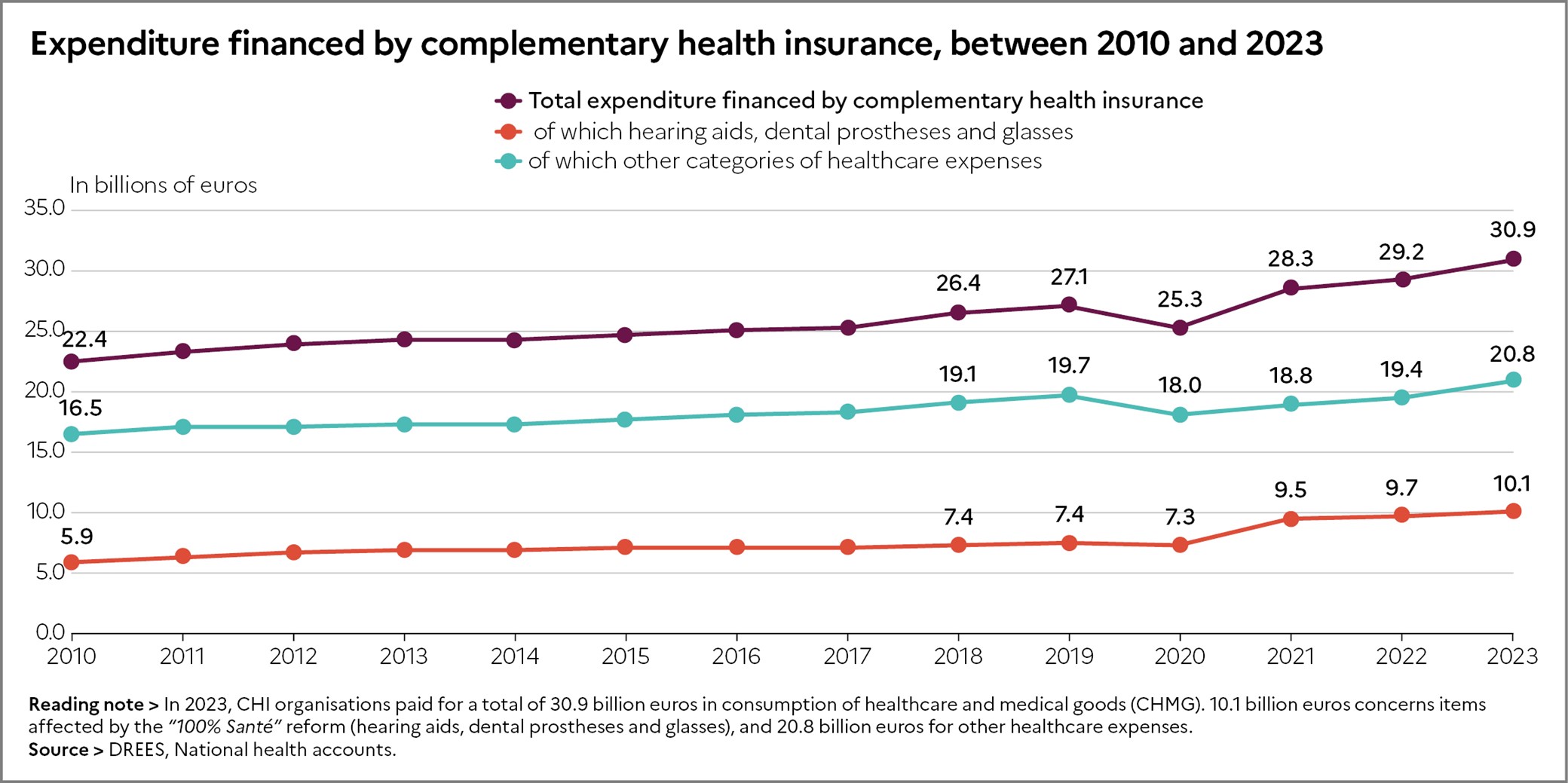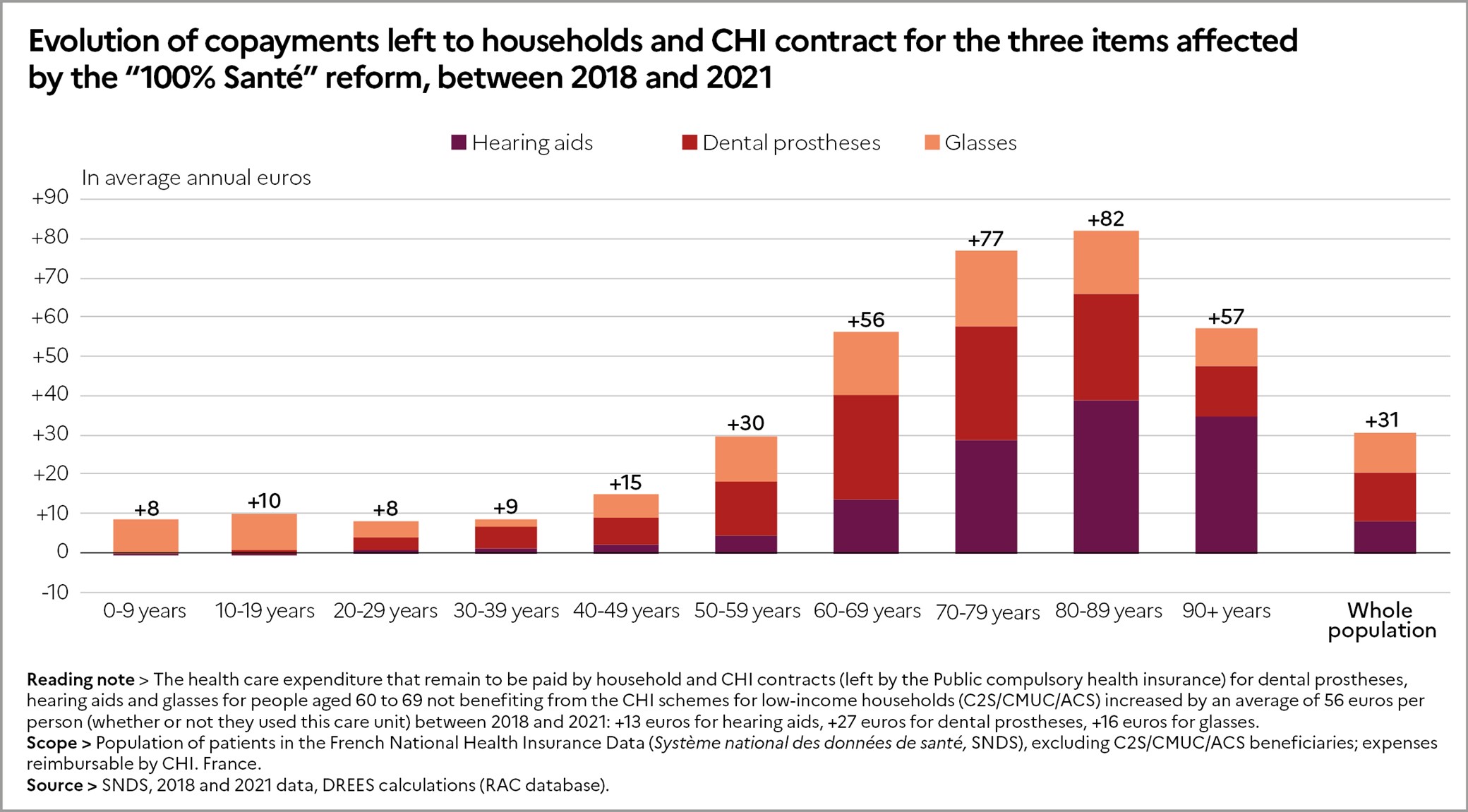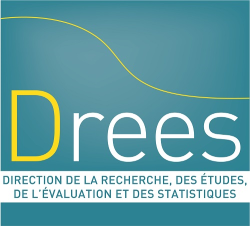Three data sources are used for this study. The first comes from the latest editions of the DREES survey conducted among insurance organisations (2019, 2021). For a representative sample of the ten most widely subscribed individual and group CHI contracts, this survey makes it possible to observe insurance premium amounts for a “benchmark” policyholder, at different ages (20, 40, 60, 65, 75, 85). The second data set concerns the aggregate payments of health expenditures funded by CHI organisations, and comes from the national French health accounts. Finally, data from the Public French National Health Insurance Data (Système national des données de santé), provides information on healthcare expenditure for the entire French population, which makes it possible to measure trends in the use of healthcare and the financial risk remaining to be covered by CHI, depending on the age of the policyholder.
Complementary health insurance at the heart of the “100% Santé” reform
Implemented between 2019 and 2021, the “100% Santé” reform offers people covered CHI contract a basket of goods without any out-of-pocket payment for some specific dental prostheses, hearing aids and glasses. This reform relies heavily on CHI contracts, whose premiums are expected to rise as a result of the improved coverage.
Premiums rise up 12% at age 85 and 7% at age 60 between 2019 and 2021, for a benchmark policyholder with an individual contract
Between 2019 and 2021, the premium for a benchmark policyholder covered by an individual CHI contract rises for policyholder beyond 40 only: from an average of 130 euros per month to 146 euros at age 85 (+12%), from 115 euros to 127 euros at age 75 (+11%) and from 87 euros to 93 euros at age 60 (+7%). Seniors insured by the least comprehensive or mid-range contracts are often affected by higher premium increases than the youngest insured. In comparison, the average monthly premium for collective contracts (mainly employer-sponsored plans), which cover a majority of working-age people, has remained stable overall.
The ”100% Santé” reform improves access to care for the elderly, particularly for hearing aids
The number of people using hearing aids rose by 75% between 2019 and 2021. The use of dental prostheses and glasses has increased by 17%. This change in usage mainly concerns people aged 60 or over. For example, 4.1% of patients aged 70 to 79 years purchased hearing aids in 2021, compared with 2.2% in 2018 (+83%).
Health care expenditures funded by CHI organisations for goods included in the “100% Santé” reform strongly increased
Taking the years 2020 and 2021 together (compared to 2019), CHI organisations paid an extra 2.1 billion euros for the care items covered by the reform (glasses, hearing aids and dental prostheses), an increase of 30%. However, the impact of the reform on overall spending by CHI organisations was reduced by the concomitant effect of the health crisis. In fact, reimbursements for other care items fell sharply, by around 2.6 billion euros. CHI organisations were subject to an exceptional tax of 1.5 billion euros. In total, the CHI organisations' expenditure was 0.9 billion euros higher in 2020 and 2021. Over the same period, the premiums collected increased by 1.1 billion euros.

The increase in CHI spending is concentrated on older policyholders
Copayments that remain after the payment of the Public insurance fund (to be paid by households or their CHI contract) for items of care affected by “100% Santé” reform has mainly increased for people aged 60 or over. The par of the copayment that is compulsorily funded by CHI contracts has also increased, particularly for policyholders covered by a low-coverage contract. This increase in CHI spending was however mitigated by the effects of the Covid-19 crisis, which led to a reduction in the other items expenditures to be covered by CHI for other care items.
In the short term, the overall effects of this reform on CHI premiums may have been reduced by the one-off drop in the consumption of care by elderly policyholders caused by the health crisis, despite an exceptional tax imposed to CHI organisations. The rise in premiums for older policyholders is likely to continue, especially as the use of goods included in the “100% Santé” and awareness of the reform continue to grow.

